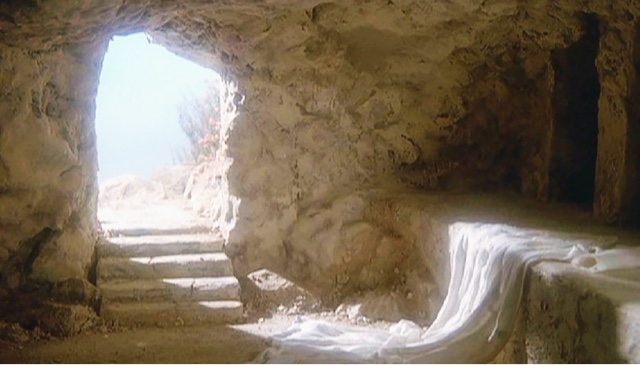And So...
Read Matthew 28.
And so the Gospel story comes to an end. In many people's minds, it ended in the chapter before. Jesus was dead. The hope he brought was over. But, in reality, it's only just begun. There are a lot of things that could be mined out of this chapter, but I want to focus on just two, and they are related.
The angel tells the disciples that Jesus will meet them in Galilee, that he has gone there ahead of him. Let's not get hung up on the timeline here, because we know Jesus meets them in the Upper Room in Luke's Gospel. The timeline and straightening all that out is a good exercise for scholars. What we want to know is what Matthew is trying to say. Do you remember who he is writing this Gospel for? Believers in Galilee who are being persecuted, who are in danger of losing their faith, who may feel like Jesus has abandoned them. Matthew wants them to know Jesus has not. He is there. He went ahead of those first disciples into Galilee. There they saw him. And just so, these persecuted believers can know he is with them as well. He has not forgotten them.
And that, then, ties into the very last words of the Gospel. Whenever the disciples manage to get to Galilee (it's not a short trip on foot), he is, in fact, there. Waiting on them. Ready for them. Just as he has always been. And so, the gives them a commission and a promise. The commission: stop sitting around and get out there. Make disciples. Make "little Christs." The promise: I am with you, wherever you go. I am Emmanuel, and as much as that promise means to us at Christmas, it has even more power now that he is risen and living in us. He is with us always. Not in flesh and blood, but living in us though the power of the Holy Spirit. He is with us. He was with those first persecuted disciples, Matthew's audience, and he is with us, to the very end of the age. You are never alone.
He is with you. That's the hope and the promise of the resurrection. That's the hope that allows us to get out of bed every morning. That is ultimately the hope that caused Matthew to write. Jesus came. He died. He rose. And he is with you.
Thanks be to God!



Comments
Post a Comment